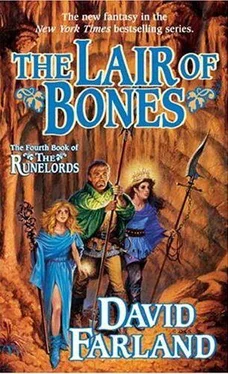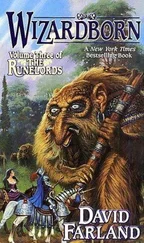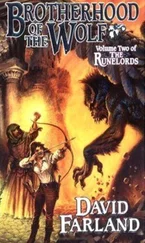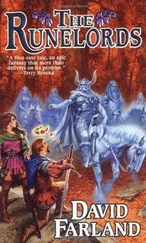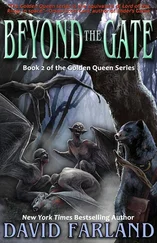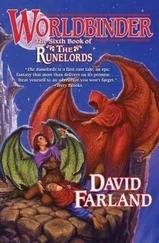David Farland - The Lair of Bones
Здесь есть возможность читать онлайн «David Farland - The Lair of Bones» весь текст электронной книги совершенно бесплатно (целиком полную версию без сокращений). В некоторых случаях можно слушать аудио, скачать через торрент в формате fb2 и присутствует краткое содержание. Жанр: Фэнтези, на английском языке. Описание произведения, (предисловие) а так же отзывы посетителей доступны на портале библиотеки ЛибКат.
- Название:The Lair of Bones
- Автор:
- Жанр:
- Год:неизвестен
- ISBN:нет данных
- Рейтинг книги:3 / 5. Голосов: 1
-
Избранное:Добавить в избранное
- Отзывы:
-
Ваша оценка:
- 60
- 1
- 2
- 3
- 4
- 5
The Lair of Bones: краткое содержание, описание и аннотация
Предлагаем к чтению аннотацию, описание, краткое содержание или предисловие (зависит от того, что написал сам автор книги «The Lair of Bones»). Если вы не нашли необходимую информацию о книге — напишите в комментариях, мы постараемся отыскать её.
The Lair of Bones — читать онлайн бесплатно полную книгу (весь текст) целиком
Ниже представлен текст книги, разбитый по страницам. Система сохранения места последней прочитанной страницы, позволяет с удобством читать онлайн бесплатно книгу «The Lair of Bones», без необходимости каждый раз заново искать на чём Вы остановились. Поставьте закладку, и сможете в любой момент перейти на страницу, на которой закончили чтение.
Интервал:
Закладка:
“We’ll camp here for an hour,” Gaborn said at last. “Get some rest. We’ll have fish for dinner. It will help stretch our supplies.”
Iome looked up at him. “Before we do, shouldn’t we...make plans. What will we do without Binnesman?”
Gaborn shook his head. “I...he’s not dead.”
“He might as well be,” Iome said.
Gaborn shook his head in exasperation. “Of all the people in the world, Binnesman should have known best how important it was to heed my warning.”
“But sometimes even the wisdom of the wisest men fails,” Iome said. “From now on,” she begged Averan, “when Gaborn tells us to do something, do it.”
Gaborn didn’t think that they would forget the lesson. But it grieved him that it had to be learned at such a dear price. He studied the fish swimming lazily in the pool. Catching them would almost be like picking berries. He waded into the water.
“Gaborn,” Iome said, “lie down and rest. I can catch the fish.” Her fierce look told him that she would not take no for an answer.
What had she said to him earlier this morning? “While you’re out saving the world, who will be saving you?” She was taking those words to heart. Gaborn felt in no mood to argue.
He found a patch of gray man’s ear, then lay down on it while Iome and Averan caught the fish. The plants made a spongy mattress.
Gaborn lay still, listening.
On the wall of the cave above him hung a curtain of cave straws, a kind of stalactite that formed over eons as droplets of water dripped down through hollow tubes. The cave straws looked like agates or jade of varying colors, ranging from a soft rose hue to bright peach. They were beautiful to look at, sparkling gems, and the sound of water plunking from the straws onto the calcite floor created a resonance that echoed loudly. Gaborn wasn’t sure if it was the acoustics of the cavern or if it was his endowments of hearing, but the dribbling water reminding him of the soft tinkling of bells. And distantly, the pounding feet of reavers were like the roll of drums.
Gaborn played a game in his mind. Binnesman had suggested that up until now Gaborn had been asking the wrong questions. He’d concentrated on tactics, various weapons he might use to fight the One True Master, and nothing that he imagined could save his people for long.
Darkness is coming, Gaborn thought, a full night like we’ve never witnessed before. How can I save my people?
He imagined raising armies, attacking various nations—Indhopal, Inkarra, South Crowthen. It mattered not at all.
Darkness was coming, and attacking others offered no hope.
As he lay pondering, Averan pulled up some old dead tickle ferns and started a small campfire. Then she emptied the packs, setting things next to the fire to dry. She pulled out apples and nuts and whetstones and bits of flint and set them in one pile, then threw away the wet loaves of bread that had been destroyed by the water. When she finished, she repacked everything, leaving only some spare clothes and other oddments to dry.
The burning ferns had an odd peppery scent that only made Gaborn that much more hungry. Unfortunately, it would take nearly fifteen minutes for the fish to cook, and with his endowments of metabolism, it would feel more like two or three hours.
He glanced across to the far side of the cavern. The walls there looked almost flat, as if they had been carved by hand, and he spotted a couple of odd-shaped holes that looked like windows here and there, up near the ceiling of the cave. Stalactites hung from the roof, ugly things of dirty brown stone.
Gaborn dropped his mouth in surprise. He had only thought it looked like a fortress, but now he could see details: yes, down there was a gate, but part of the roof had caved in, landing at its door. Over the ages, the stone walls had buckled a bit, so that they wavered on their foundations. Stalactites hung like spears, hiding some of the windows.
“Human?” Gaborn wondered. “Or duskin?”
His heart hammered in excitement. Wondrous things could be found in duskin ruins—metalwork so fine that human hands could not match it, moonstones that shone with their own eternal light.
Gaborn got up and crossed the riverbed until he reached some fallen stones from an old wall. They were coated with mud, like that on the outer walls, making them all but invisible. There had once been a portcullis here, and the wooden gate had been bound together with iron bars. Now the iron had all gone to rust, and the wood had rotted through ages ago.
Gaborn grabbed an iron rod and pulled on it. The gate all but collapsed. He kicked in some old timbers, and made his way inside.
The floor looked as if it were coated with plaster. At some time in the past, the fortress had flooded, leaving a thick coat of mud on both floor and walls. A few Underworld plants struggled up like black bristles from the floor, but it seemed that, for some reason, little could thrive here.
A yellowish creature with a broad back, like some strange eyeless beetle, came scampering toward Gaborn, waving its small claws in the air. Gaborn stomped on the bug with an astonishing effect.
There was a pop and a flash of light, and then the dead bug began to burn steadily with a sulfur smell.
A blazer, Gaborn realized. He’d heard of the bug once, long ago, in the House of Understanding. “They are the only animals known,” old Hearthmaster Yarrow had said, “that do you the courtesy of cooking themselves when you’re ready to eat. Unfortunately, they taste worse than fried cockroaches.”
Gaborn peered about. He’d found what might have been a Great Room. On one wall the tattered remains of a tapestry still hung like a banner, but the colors had so faded that Gaborn could not even begin to guess at what it might have pictured. Ancient oil lamps rested in nooks in the walls; here and there was an odd piece of refuse—part of a rotted chair, the skeletal remains of a chest of drawers.
Mystarrians built this, Gaborn realized. I’ve seen clay lamps like these in the House of Understanding, in the Room of Time.
This place was old, very old. But Gaborn could not guess how old. He thought he knew, but dared not admit it to himself. Only three times in recorded history had Mystarria dared attempt to conquer the Underworld. Erden Geboren himself might have slept in these rooms, led warriors through these corridors during the first of those attempts.
The hair rose on Gaborn’s arms. He could almost feel the presence of spirits here, of men who had died in battle.
A narrow staircase was chiseled into the stone at the back of one room. He climbed the stairs to the second floor. An ancient wooden door blocked the way.
Words were carved into the door. They were all in old script, a corrupt version of Rofehavanish that Gaborn could barely make out. The door had rotted away, leaving blank spots for some words.
“I, Beron Windhoven...this fortress...year of Duke Val the Wise!...Below...much foretoken of reaver.”
“Duke Val the Wise?” Gaborn tried to guess at the age of the writing from memory. His mother’s line came through Val. Val the Wise was the son of Val the Foresworn, who had conquered the Westlands seven hundred years ago.
So, this place was old even then, Gaborn realized. Which meant that King Harrill could not have built it.
Gaborn pulled the door latch; it came off in his hand. He gave the door his shoulder, and it cascaded inward.
There was little to see. Four dozen small rooms had been cut into the rock. It had the look of a barracks. There were privies chipped into the stone, but no ancient weapons, no rare antiquities plundered from duskin ruins.
Anything of value had been hauled off centuries ago.
Another staircase led upward. These would be the officers’ quarters. Gaborn climbed the steps with a growing sense of reverence, came to a T. The left hallway led to a large room whose door had been kicked in. Gaborn suspected that Beron Windhoven must have claimed the room as his own. Part of the ceiling had collapsed into the room, and Gaborn dared not enter.
Читать дальшеИнтервал:
Закладка:
Похожие книги на «The Lair of Bones»
Представляем Вашему вниманию похожие книги на «The Lair of Bones» списком для выбора. Мы отобрали схожую по названию и смыслу литературу в надежде предоставить читателям больше вариантов отыскать новые, интересные, ещё непрочитанные произведения.
Обсуждение, отзывы о книге «The Lair of Bones» и просто собственные мнения читателей. Оставьте ваши комментарии, напишите, что Вы думаете о произведении, его смысле или главных героях. Укажите что конкретно понравилось, а что нет, и почему Вы так считаете.
